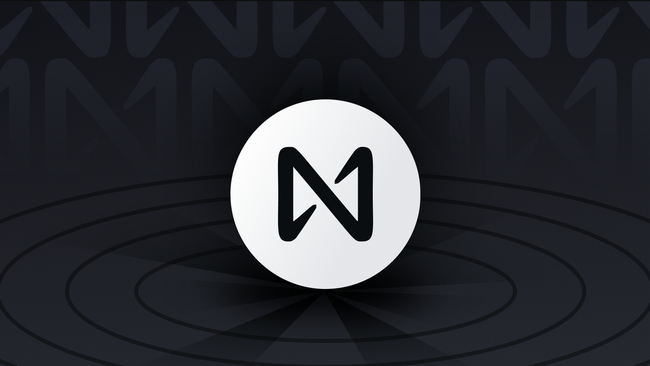-
 Bitcoin
Bitcoin $85,034.7515
0.87% -
 Ethereum
Ethereum $1,878.5720
-0.11% -
 Tether USDt
Tether USDt $0.9997
-0.02% -
 XRP
XRP $2.1173
-2.71% -
 BNB
BNB $603.7936
-2.09% -
 Solana
Solana $125.8960
-2.16% -
 USDC
USDC $1.0000
0.00% -
 Dogecoin
Dogecoin $0.1717
-1.15% -
 Cardano
Cardano $0.6803
-0.05% -
 TRON
TRON $0.2371
1.16% -
 Toncoin
Toncoin $4.0680
-1.64% -
 Chainlink
Chainlink $13.6041
-2.67% -
 UNUS SED LEO
UNUS SED LEO $9.3977
2.15% -
 Stellar
Stellar $0.2673
-2.41% -
 Avalanche
Avalanche $19.4065
-1.12% -
 Sui
Sui $2.4228
0.28% -
 Shiba Inu
Shiba Inu $0.0...01239
-4.17% -
 Hedera
Hedera $0.1682
-1.91% -
 Polkadot
Polkadot $4.1064
-3.13% -
 Litecoin
Litecoin $82.6894
-3.10% -
 MANTRA
MANTRA $6.1952
-1.48% -
 Bitcoin Cash
Bitcoin Cash $306.4058
-2.56% -
 Bitget Token
Bitget Token $4.6047
-1.08% -
 Dai
Dai $1.0000
-0.01% -
 Ethena USDe
Ethena USDe $0.9999
0.02% -
 Pi
Pi $0.6782
-5.17% -
 Hyperliquid
Hyperliquid $13.4844
-1.67% -
 Monero
Monero $215.4922
-1.00% -
 Uniswap
Uniswap $6.1086
-1.70% -
 Aptos
Aptos $5.2965
-1.83%
What kind of currency is NEAR coin? Future trend and prospect forecast of NEAR coin
NEAR Coin's versatility as a transaction fee, staking asset, governance token, and DApp access credential empowers the NEAR ecosystem, fostering its expansion and bolstering its position as a scalable and user-friendly platform for decentralized application development.
Oct 01, 2024 at 02:41 pm

What is NEAR Coin?
- Overview
NEAR Coin (NEAR) is a decentralized cryptocurrency native to the NEAR Protocol, a proof-of-stake blockchain platform designed for decentralized application development. NEAR focuses on scalability, user-friendliness, and developer accessibility. Functions and Use Cases
NEAR serves several functions within the NEAR ecosystem:
- Transaction Fees: NEAR is used to pay for transaction fees on the NEAR Protocol.
- Staking: NEAR holders can stake their coins to participate in the network's consensus mechanism and earn rewards.
- Governance: NEAR holders play a role in network governance through voting on proposals that affect the platform's development.
- DApp Access: NEAR is required to access and use decentralized applications (DApps) built on the NEAR Protocol.
Future Trend and Prospect Forecast of NEAR Coin
- Growing Ecosystem:
The NEAR ecosystem has grown rapidly in recent years, with numerous DApps and protocols being built on the platform. This growth is expected to continue, attracting developers and users and boosting the demand for NEAR. - Scalability Enhancements:
NEAR Protocol is continuously implementing scalability solutions, such as Nightshade sharding and Simple Nightshade, to increase transaction throughput and reduce transaction fees. These enhancements will make NEAR even more attractive to developers and users. - Interoperability:
NEAR Protocol is exploring interoperability with other blockchains, enabling cross-chain transactions and the development of interconnected DApps. This will expand the reach of NEAR and enable it to compete with other leading blockchains. - Growing Adoption:
NEAR Coin has gained significant adoption in the decentralized finance (DeFi) space, with several lending, borrowing, and liquidity protocols built on the platform. This adoption is expected to continue as DeFi becomes more mainstream. - Price Performance:
The price of NEAR Coin has experienced significant volatility in the past, but it has shown strong growth potential. Long-term factors such as the growth of the NEAR ecosystem and the increasing demand for scalable blockchain solutions could drive the price of NEAR higher in the future.
Conclusion:
NEAR Coin is a promising cryptocurrency with a promising future. Its focus on scalability, user-friendliness, and developer accessibility makes it well-positioned to become a leading platform for decentralized application development. The growing ecosystem, scalability enhancements, interoperability efforts, increasing adoption, and potential for price appreciation make NEAR Coin a compelling asset for investors and users looking to capitalize on the growth of the blockchain industry.
Disclaimer:info@kdj.com
The information provided is not trading advice. kdj.com does not assume any responsibility for any investments made based on the information provided in this article. Cryptocurrencies are highly volatile and it is highly recommended that you invest with caution after thorough research!
If you believe that the content used on this website infringes your copyright, please contact us immediately (info@kdj.com) and we will delete it promptly.
- Sony Electronics Singapore Announces Support for USD Coin (USDC) Payments
- 2025-04-02 17:35:12
- Dogecoin (DOGE) Poised for 270% Rally as Key Pattern Emerges
- 2025-04-02 17:35:12
- Bitcoin (BTC) Price Today Rises Above $84k!
- 2025-04-02 17:30:12
- Institutional Adoption Is Shaping Bitcoin's Market Value
- 2025-04-02 17:30:12
- 2025 List Identifies 3008 Billionaires, Including 16 Crypto Moguls
- 2025-04-02 17:25:12
- XRP Price Prediction: Will the SEC's Closed Meeting on April 3 Determine the Remittance Token's Near-Term Trajectory?
- 2025-04-02 17:25:12
Related knowledge

What is Ethereum’s Slashing mechanism and how to punish malicious behavior?
Feb 20,2025 at 03:08am
Key PointsOverview of slashingDifferent types of slashing in EthereumIncentives and consequences of slashingIdentifying and reporting slashed validatorsOngoing discussions and potential improvementsEthereum's Slashing Mechanism: Punishing Malicious BehaviorEthereum's slashing mechanism is an essential tool for ensuring network security and punishing mal...

What is the verifier node of Ethereum and how to become a verifier?
Feb 19,2025 at 06:00pm
The Verifier Node of Ethereum: A Comprehensive GuideKey Points:What is a Verifier Node?How to Become a Verifier NodeResponsibilities and Rewards of a Verifier NodeMinimum Requirements for Becoming a Verifier NodePotential Difficulties in Running a Verifier Node1. What is a Verifier Node?A Verifier Node is an independent entity on the Ethereum network th...

What is Ethereum’s staking, and how to participate and earn money?
Feb 19,2025 at 04:37pm
Key Points:Understanding Ethereum's Staking MechanismSteps to Participate in StakingBenefits and Rewards of StakingSecurity and Risk ConsiderationsTechnical Requirements and Hardware OptionsPotential Challenges and Troubleshooting TipsFAQs on Ethereum StakingWhat is Ethereum's Staking?Proof-of-Stake (PoS) is a consensus mechanism used in blockchain netw...

What is Ethereum’s DAO (Decentralized Autonomous Organization) and how does it work?
Feb 20,2025 at 03:12am
Key PointsDefinition and Structure of a DAOGovernance and Decision-Making in DAOsBenefits and Use Cases of DAOsChallenges and Limitations of DAOsWhat is Ethereum's DAO (Decentralized Autonomous Organization) and How Does It Work?Definition and Structure of a DAOA Decentralized Autonomous Organization (DAO) is an innovative governance and management fram...

What is Ethereum's multi-signature wallet and how to improve security?
Feb 20,2025 at 02:18pm
Key Points:Understanding the Concept of a Multi-Signature WalletBenefits and Drawbacks of Multisig WalletsRequirements for Setting Up a Multisig WalletStep-by-Step Guide to Generating a Multisig WalletImplementing Strategies for Enhanced Security1. Understanding the Concept of a Multi-Signature WalletA multi-signature (multisig) wallet in the Ethereum e...

What is Ethereum's oracle and how to provide data for smart contracts?
Feb 21,2025 at 01:30am
Key Points:Understanding the concept of oracles in EthereumExploring different types of oraclesDetailed guide on how to provide data for smart contractsAddressing potential challenges and considerationsWhat is Ethereum's Oracle?Oracles are crucial components in the Ethereum ecosystem, enabling smart contracts to access real-world data and off-chain even...

What is Ethereum’s Slashing mechanism and how to punish malicious behavior?
Feb 20,2025 at 03:08am
Key PointsOverview of slashingDifferent types of slashing in EthereumIncentives and consequences of slashingIdentifying and reporting slashed validatorsOngoing discussions and potential improvementsEthereum's Slashing Mechanism: Punishing Malicious BehaviorEthereum's slashing mechanism is an essential tool for ensuring network security and punishing mal...

What is the verifier node of Ethereum and how to become a verifier?
Feb 19,2025 at 06:00pm
The Verifier Node of Ethereum: A Comprehensive GuideKey Points:What is a Verifier Node?How to Become a Verifier NodeResponsibilities and Rewards of a Verifier NodeMinimum Requirements for Becoming a Verifier NodePotential Difficulties in Running a Verifier Node1. What is a Verifier Node?A Verifier Node is an independent entity on the Ethereum network th...

What is Ethereum’s staking, and how to participate and earn money?
Feb 19,2025 at 04:37pm
Key Points:Understanding Ethereum's Staking MechanismSteps to Participate in StakingBenefits and Rewards of StakingSecurity and Risk ConsiderationsTechnical Requirements and Hardware OptionsPotential Challenges and Troubleshooting TipsFAQs on Ethereum StakingWhat is Ethereum's Staking?Proof-of-Stake (PoS) is a consensus mechanism used in blockchain netw...

What is Ethereum’s DAO (Decentralized Autonomous Organization) and how does it work?
Feb 20,2025 at 03:12am
Key PointsDefinition and Structure of a DAOGovernance and Decision-Making in DAOsBenefits and Use Cases of DAOsChallenges and Limitations of DAOsWhat is Ethereum's DAO (Decentralized Autonomous Organization) and How Does It Work?Definition and Structure of a DAOA Decentralized Autonomous Organization (DAO) is an innovative governance and management fram...

What is Ethereum's multi-signature wallet and how to improve security?
Feb 20,2025 at 02:18pm
Key Points:Understanding the Concept of a Multi-Signature WalletBenefits and Drawbacks of Multisig WalletsRequirements for Setting Up a Multisig WalletStep-by-Step Guide to Generating a Multisig WalletImplementing Strategies for Enhanced Security1. Understanding the Concept of a Multi-Signature WalletA multi-signature (multisig) wallet in the Ethereum e...

What is Ethereum's oracle and how to provide data for smart contracts?
Feb 21,2025 at 01:30am
Key Points:Understanding the concept of oracles in EthereumExploring different types of oraclesDetailed guide on how to provide data for smart contractsAddressing potential challenges and considerationsWhat is Ethereum's Oracle?Oracles are crucial components in the Ethereum ecosystem, enabling smart contracts to access real-world data and off-chain even...
See all articles

























































































